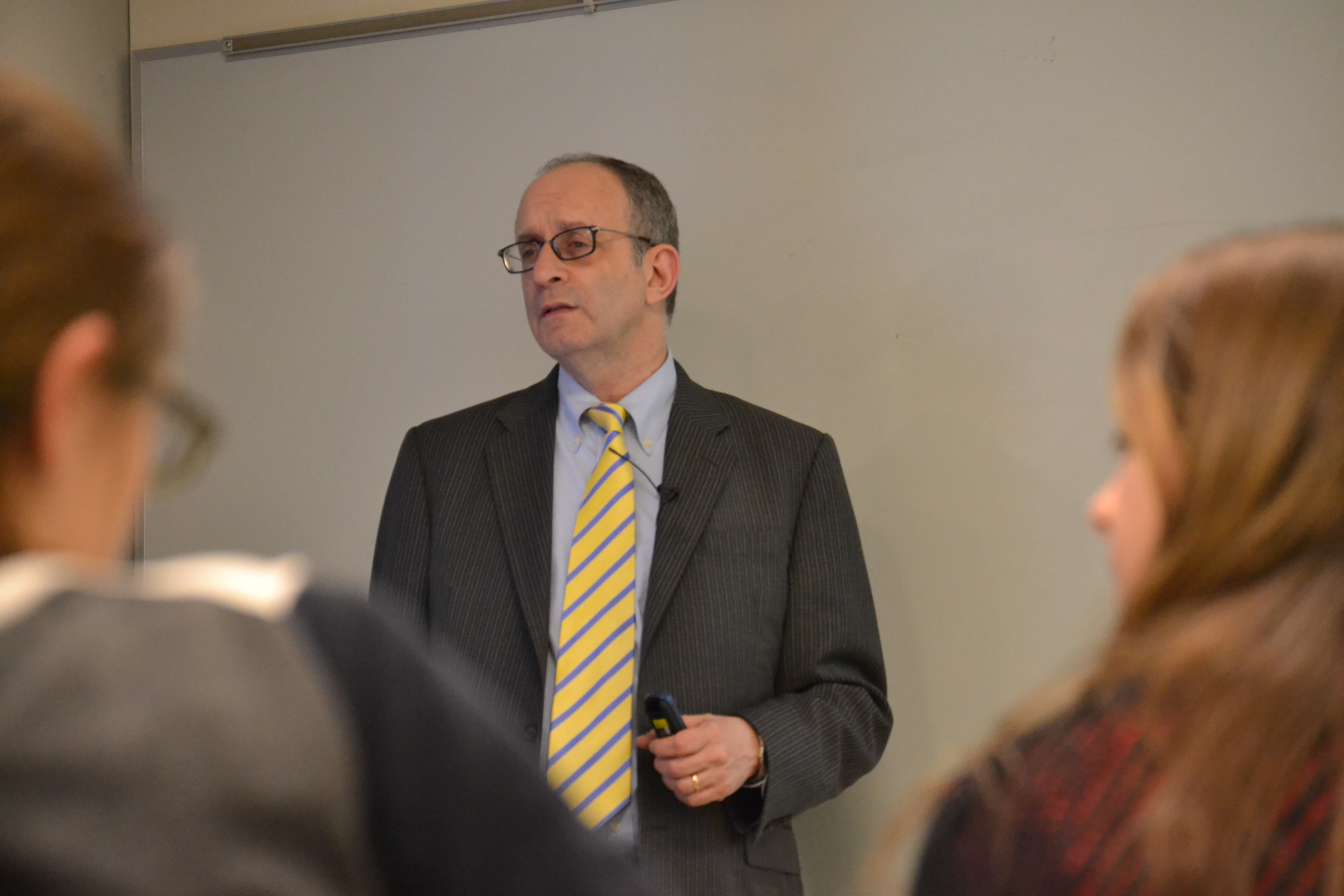Dr. Alan Kadish to Teach Biomedical Science Course at LCW
President of the Touro College and University System will begin teaching LCW Honors students
A cardiologist and researcher by training, Dr. Alan Kadish has written nearly 300 papers in applied medical research. He has taught at the University of Michigan, was at Northwestern University in Chicago for nineteen years, and has led his own research institute at the latter.
As President and CEO of the Touro College & University System, he rarely gets to teach now, but is taking the opportunity this semester to engage with the bright young minds of Lander College for Women-The Anna Ruth and Mark Hasten School. This semester, Dr. Alan Kadish is teaching an Honors-level seminar titled Contemporary Issues in Biomedical Science to LCW undergraduates.
Yet if one walks into the classroom on Tuesday evenings from five to seven pm, one may wonder whether the class is an undergraduate course or a medical school lecture.
The professor may be explaining a slide about, say, HeLa cells in minute detail, while the students nod their heads, raise their hands and answer questions every once in a while. Or perhaps you might see a student giving a presentation on F-plasmids—or another student discussing the nature of the strep virus.
On February 24th, one student was presenting her review of a study about the Sanger Method, a process of DNA sequencing based on the selective incorporation of chain-terminating dideoxynucleotides by DNA polymerase during in vitro DNA replication.
After explaining how the Sanger Method works step-by-step, the student beams.
“Isn’t this cool?” she asks her audience—a group of her peers. Several nod. “It took me a while to figure this out,” she admits.
Dr. Kadish looks impressed. “It’s not intuitive,” he agrees. And then he promptly continues: “But did anyone hear of the Shotgun Method?"
One student raises her hand and explains the difference between the two methods of DNA sequencing. A lively dialogue about the Sanger Method versus the Shotgun Method ensues, and then the discussion turns to the human genome project.
Biology major and Honors student Basha Behrman, a Cincinnati native pursuing pre-medical studies, signed up for the class in anticipation of gaining valuable research analysis skills. Though Basha has only just embarked on her medical school process, she already knows that she is interested in medical research.
“I’m excited to learn how to concretely analyze papers, point out their strengths and weaknesses, and get into the minds of these researchers to understand how they designed, conducted and presented a research study. I also think it’s going to give me a really good exposure to topics I may not have had the chance to learn about in more standard classes,” says Behrman.
Dr. Kadish begins each class with an introduction to biostatistics and then delves into a contemporary issue in biomedical science (hence the title of the course)—for example, DNA sequencing, continuous cell lines, or the ethical dilemmas involved in using HeLa cells. After the first hour, three or four Honors students present their reviews of research studies assigned to them by Dr. Kadish.
“So far we’ve been critically reading and analyzing some key, really pivotal studies,” Behrman explains. “For example, we just analyzed the DeWood study that discovered that clots are actually a major contributor to heart attacks, versus progressive atherosclerosis, which was the previous assumption – and this discovery results in two totally different ways of treating the patient. In one, you wouldn’t prescribe any sort of cardiac rehab—the doctor would tell the patient to rest and not tax the heart too much; while the other involves dissolving the clots and trying to build and strengthen the heart muscles to retain long-term anticoagulation.”
Dr. Marian Stoltz-Loike, dean of the Lander College for Women, says she was “very pleased” when Dr. Kadish agreed to teach this class. “This is an exciting opportunity for our students. Not only is it rare for undergrads to have the chance to take a seminar with the president of their academic institution, but it’s also unusual to have an undergraduate class taught by a physician with the academic and scholarly credentials of Dr. Kadish.”
“Dr. Kadish's willingness to find the time to teach this class is a profound reflection of his commitment to the college and our students,” said the dean.
Basha agrees.
“I think it’s amazing to have someone so experienced and knowledgeable in this area devote his time to us, every week, and invest himself in developing our skills.”
“Clearly,” she adds, “a lot of other people thought so too,” she laughs, gesturing to the packed classroom. “I’m very excited for the rest of the semester.”


